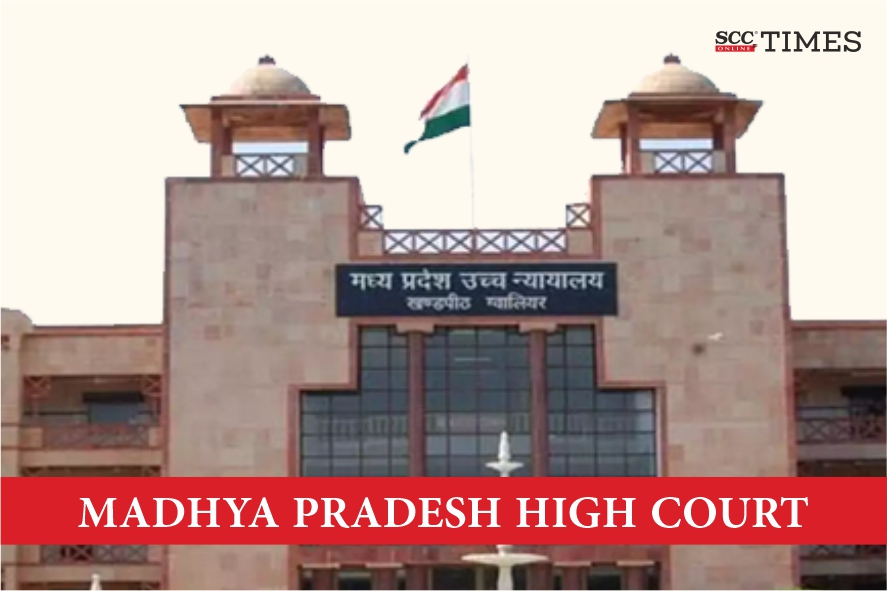Madhya Pradesh High Court: In an application filed under Order 7 Rule 11 of the Civil Procedure Code, 1908 (CPC) for rejection of election petitions challenging the election of the respondent based on alleged non-compliance with Affidavit requirements, a single-judge bench of Vishal Mishra, J., dismissed the election petitions for failing to establish a clear and specific case of non-compliance with mandatory provisions that materially affected the election result.
In the instant matter, the petitioners filed an Election Petition challenging the election of the respondent based on alleged non-compliance with mandatory provisions regarding the submission of nomination papers and affidavits (Form 26) under the Representation of People Act, 1951 (the Act) and the Conduct of Election Rules, 1961 (the Rules). The petitioners argued that there were blank columns and incorrect information, constituting non-compliance with the Act and corrupt practices under Section 100(1)(d)(iv) of the Act. The petitioners claimed that the respondent failed to provide complete and correct information, particularly regarding his criminal convictions, assets, and liabilities, thereby misleading the voters and authorities. The petitioners insisted that the non-compliance with mandatory provisions should be grounds for rejecting the respondent’s nomination and annulling the election.
The respondents filed the present applications under Order 7 Rule 11 of the CPC for rejection of election petitions. The respondents contended that all required particulars were furnished, including additional annexures where space was insufficient, and that no mandatory provisions of the Act or Rules were violated. It was argued that the petition lacked detailed and specific pleadings to support the allegations of corrupt practices, and that the election petition did not demonstrate how the alleged non-compliance materially affected the election result, which is necessary under Section 100(1)(d)(iv) of the Act. The respondents relied Karikho Kri v. Nuney Tayang, 2024 SCC Online SC 519 and Manglani Lal Mandal v. Bishnu Deo Bhandari, (2012) 3 SCC 314, and argued that mere non-compliance without material impact on the election result does not invalidate the election.
The Court noted that the election petition should include specific material facts and evidence showing how alleged non-compliance materially affected the election. The Court emphasised that for an election to be declared void under Section 100(1)(d)(iv) of the Act, the non-compliance must be shown to have materially affected the election result. The Court also noted that the petitioners failed to demonstrate how the alleged non-compliance materially affected the election outcome.
The Court reviewed the affidavit and nomination form submitted by the respondent and found that while certain columns were supplemented with annexures, the respondent had provided the required details in substance.
The Court relied on Karikho Kri (Supra) and Dasangla Pul v. Lupalam Kri, 2023 SCC Online SC 1367, and emphasised that mere non-compliance without evidence of material impact on election results is insufficient. The Court held that “mere minor differences in the nomination form or nondisclosure of some information regarding dues, as in the present case cannot be said to be a substantial defect so as to materially affect the result of the election.”
“The petitioners have not averred as to how the result of the returned candidate can be affected by minor deficiencies. Thus, the petitioners have failed to make out any cause of action.”
The Court found that the petitioners failed to adequately demonstrate how the alleged non-compliance materially affected the election result. The Court held that the petition lacked sufficient specificity and evidence as required by Sections 83 and 100 of the Act. Consequently, the Court allowed the applications filed by the respondents under Order 7 Rule 11 CPC and dismissed the election petitions.
[Ramgareb v. Ajay Arjun Singh, 2024 SCC OnLine MP 5332, Decided on 22-08-2024]
Advocates who appeared in this case:
Shri Prakash Upadhyay, Counsel for the Petitioners
Shri Sanjay Agrawal, Senior Advocate with Ms. Ankita Singh Parihar, Counsel for the Respondent






